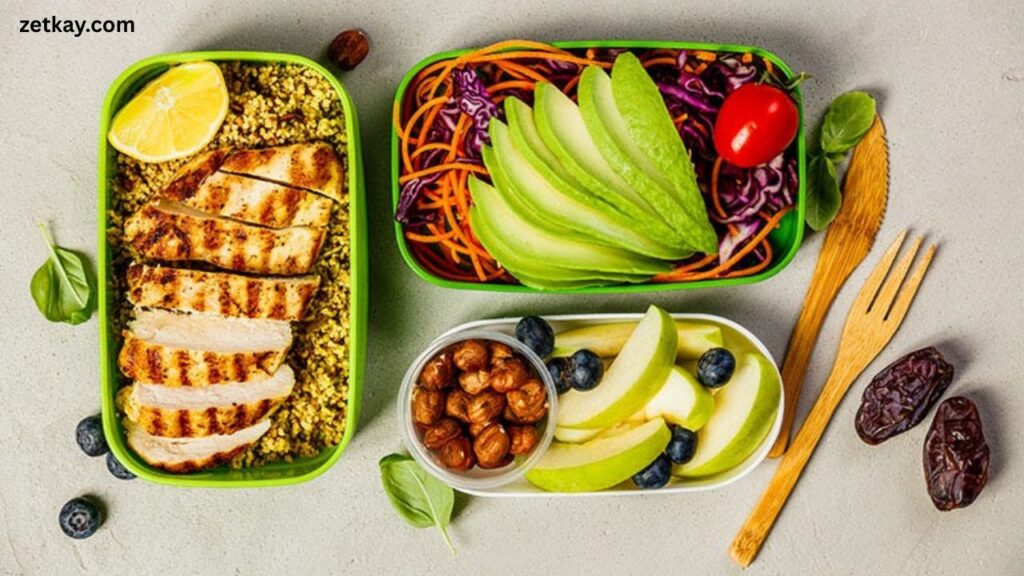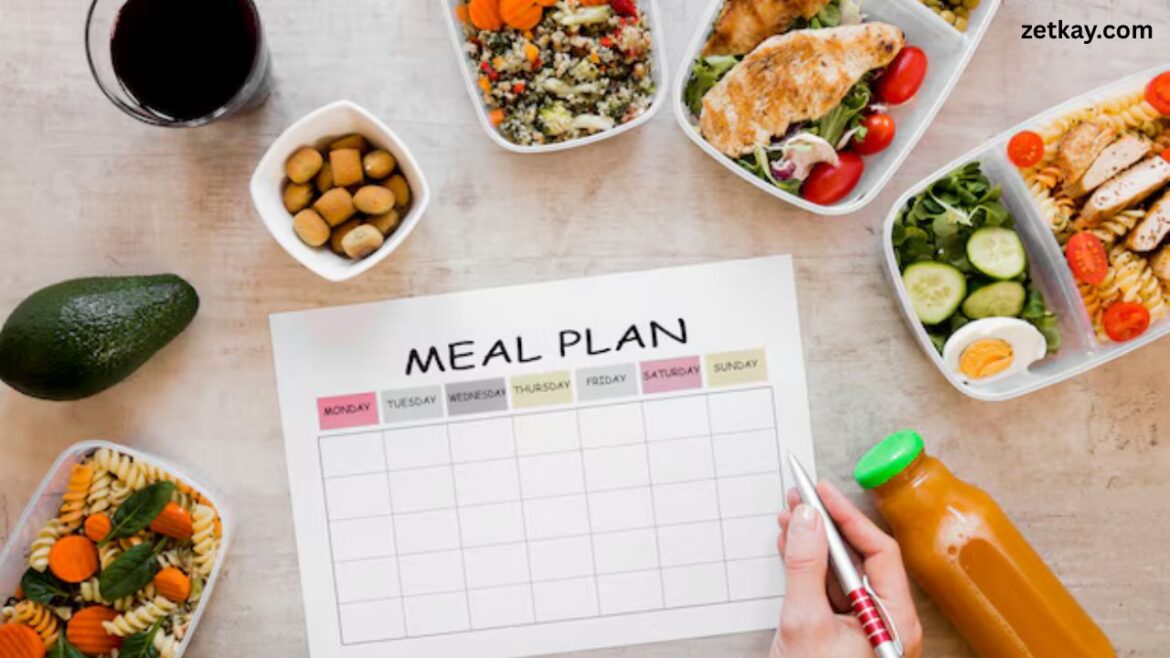Discover the 20 best healthy meal plans for beginners to kickstart your wellness journey. Includes easy recipes, grocery tips, and meal prep ideas using clean eating, low-calorie, and balanced diet plans. Perfect for weight loss and healthy living!
Starting a healthy lifestyle doesn’t have to be hard. If you’re a beginner, the best way to start is with simple and practical meal planning. A well-balanced diet not only helps you stay fit but also boosts your energy and mood. In this guide, we’ll walk you through 20 of the best healthy meal plans perfect for beginners who want to eat better without overcomplicating things.
1. Easy Meal Prep for Beginners
If you’re new to cooking, start with easy meal prep for beginners. Choose recipes that need only a few ingredients and minimal cooking. Think grilled chicken, boiled eggs, and steamed veggies all prepped in under an hour for the whole week.
2. Healthy Eating Habits
One of the first things you need to adopt is healthy eating habits. This means cutting down on junk food and eating more fruits, vegetables, and lean proteins. It’s not just what you eat it’s how often and how much that matters.
3. Balanced Diet Plans
Balanced diet plans include the right mix of carbs, protein, and fat. For example, a plate with brown rice, grilled chicken, and sautéed spinach gives you everything you need for a complete meal.
4. Simple Nutritious Meals
You don’t have to be a chef to cook simple nutritious meals. Try a tuna salad, veggie stir-fry, or scrambled eggs with avocado. Quick, tasty, and full of nutrients!
5. Clean Eating for Beginners
Clean eating for beginners means avoiding processed foods and focusing on natural, whole ingredients. Replace white bread with whole grain, sugary snacks with nuts or fruit, and soft drinks with water or herbal tea.

6. Weight Loss Meal Plan
If your goal is to drop a few pounds, go for a weight loss meal plan. Reduce your calorie intake while still enjoying filling meals like soups, smoothies, and lean proteins with veggies.
7. Low-Calorie Recipes
One great way to lose weight without feeling hungry is to cook low-calorie recipes. Think zucchini noodles instead of pasta, or Greek yogurt instead of cream.
8. Beginner-Friendly Recipes
Try beginner-friendly recipes that take less than 30 minutes. Start with oatmeal for breakfast, chicken wraps for lunch, and grilled salmon with veggies for dinner.
9. Weekly Meal Plan Ideas
Planning ahead saves time. Use weekly meal plan ideas to stay organized. Cook in batches, label your containers, and avoid that “what should I eat today?” stress.
10. Portion Control Tips
Use portion control tips to avoid overeating. Try smaller plates, measure out ingredients, and avoid eating straight from the bag especially for snacks.
11. Whole Food Recipes
Whole food recipes use real, unprocessed ingredients. Swap canned sauces with homemade ones and add more raw fruits and veggies into your meals.
12. Grocery Shopping List
Always go to the store with a grocery shopping list. This helps you stick to your plan and avoid impulse buying. Include basics like eggs, oats, chicken, brown rice, and fresh produce.
13. Healthy Breakfast Ideas
Your day should start right. Some healthy breakfast ideas include overnight oats, smoothies, whole-grain toast with peanut butter, or scrambled eggs with spinach.
14. Low-Carb Meal Options
Cutting down on carbs? Try low-carb meal options like cauliflower rice, lettuce wraps, or grilled chicken salads. These meals are filling without the heavy carb load.
15. High-Protein Meals
High-protein meals are great for building muscle and keeping you full. Add foods like lentils, eggs, Greek yogurt, or lean meats into your meals for that protein punch.
16. Family-Friendly Meal Prep
If you’re cooking for more than just yourself, go for family-friendly meal prep. Make dishes like baked chicken, casseroles, or pasta with veggies that everyone can enjoy.
17. Affordable Healthy Meals
Eating healthy doesn’t mean spending a lot. Focus on affordable healthy meals like beans, eggs, frozen vegetables, and canned tuna. Budget-friendly and full of nutrition!
18. Plant-Based Diet Plan
Interested in going meatless? A plant-based diet plan is packed with benefits. Use lentils, tofu, beans, and lots of vegetables to create delicious, satisfying meals.
19. Meal Planning Tips
Use simple meal planning tips to stay consistent. Choose meals you love, cook in bulk, and freeze portions for later. It saves time and keeps you from ordering takeout.
20. Quick and Easy Healthy Meals
Some days are busy and that’s okay. Keep quick and easy healthy meals on hand like veggie omelets, wraps, or rice bowls with whatever’s in your fridge.
Conclusion
Eating healthy doesn’t have to be confusing or expensive. With these 20 beginner-friendly meal plans and practical tips, you can easily build a routine that supports your health and fits your lifestyle. Whether you’re looking to lose weight, gain energy, or just feel better, these meals have got you covered. Start small, stick with it, and you’ll build healthy eating habits that last a lifetime. Happy meal prepping!
FAQs: Healthy Meal Plans for Beginners
1. What is the best meal plan for someone new to healthy eating?
The best meal plan for beginners includes simple nutritious meals like lean proteins, whole grains, and vegetables. Focus on balanced diet plans and easy recipes you can stick with long-term.
2. How do I start meal prepping as a beginner?
Start with easy meal prep for beginners by choosing 2–3 basic recipes, cooking in bulk, and storing them in containers. Use a grocery shopping list to stay organized and avoid waste.
3. Can meal plans help with weight loss?
Absolutely! A good weight loss meal plan includes low-calorie recipes, portion control tips, and plenty of water. Eating clean, whole foods consistently can help you shed fat safely.
4. Are healthy meal plans expensive?
No, you can create affordable healthy meals using ingredients like oats, beans, lentils, frozen vegetables, and eggs. Planning ahead reduces waste and saves money.
5. What should I eat for breakfast on a healthy meal plan?
Some healthy breakfast ideas include smoothies, oatmeal, eggs, or whole-grain toast with avocado. Focus on high-protein meals to keep you full until lunch.
